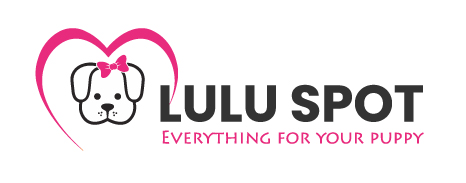Welcoming a new puppy into your home is a joyful experience, but it also comes with important responsibilities. Puppies require consistent care, patience, and proper guidance to grow into happy, healthy, and well-behaved adult dogs.
If you’re a first-time dog owner, understanding the basics of puppy care can help you build a strong foundation for your puppy’s lifelong wellbeing.
Here are 10 essential puppy care tips every new dog owner should follow:
1. Prepare Your Home for Your Puppy’s Arrival
Before bringing your puppy home, make your living space safe and comfortable:
- Remove hazardous items (wires, toxic plants, small objects).
- Set up a dedicated space with a bed, crate, and water bowl.
- Puppy-proof furniture and secure any areas that could cause injury.
This preparation helps your puppy feel secure and minimizes the chances of accidents.
2. Schedule a Veterinary Check-Up Early
An early vet visit is crucial for:
- Full physical examination
- Initial vaccinations
- Deworming schedule
- Flea and tick prevention
- Microchipping discussion
Your vet will also create a long-term care plan tailored to your puppy’s breed, age, and health needs.
3. Start with Proper Nutrition
Balanced nutrition supports your puppy’s rapid growth and development. Key points include:
- Select a high-quality puppy-specific food.
- Follow age-appropriate portion sizes.
- Provide fresh water at all times.
Consult your veterinarian to choose the best food for your puppy’s breed, size, and dietary requirements.
4. Begin Training and Socialization Early
The first few months are critical for developing good behavior. Early training helps prevent behavioral problems later on. Start with:
- Housebreaking and potty training
- Basic obedience commands (sit, stay, come)
- Crate training
- Socializing with people, children, and other pets
Positive reinforcement—using treats, praise, and consistency—makes training more effective.
5. Establish a Routine
Dogs thrive on consistency. A predictable daily routine helps with:
- Feeding times
- Bathroom breaks
- Exercise and play sessions
- Training schedules
- Sleep habits
A structured routine reduces anxiety and helps your puppy adjust quickly.
6. Provide Regular Exercise and Playtime
Puppies are full of energy and need daily physical and mental stimulation:
- Short walks suited to their age
- Play sessions with interactive toys
- Puzzle toys for mental enrichment
Exercise not only promotes healthy growth but also prevents destructive behaviors caused by boredom.
7. Focus on Grooming and Hygiene
Regular grooming keeps your puppy clean and comfortable:
- Brush their coat based on breed needs.
- Bathe your puppy as recommended (usually once every few weeks).
- Clean their ears to prevent infections.
- Trim their nails regularly.
- Brush their teeth to promote dental health.
Start grooming routines early to get your puppy accustomed to being handled.
8. Monitor Health and Prevent Illness
Prevention is key to long-term health:
Stay up to date with vaccinations.
- Use flea, tick, and heartworm preventatives.
- Watch for signs of illness (vomiting, diarrhea, lethargy, coughing).
- Schedule routine veterinary check-ups.
Prompt medical care can prevent minor issues from becoming serious problems.
9. Create a Positive Bond Through Patience and Consistency
Building trust takes time. Positive interactions include:
- Gentle handling and cuddles
- Play and training sessions
- Avoiding harsh discipline
- Rewarding good behavior
Consistency helps your puppy understand expectations and builds a strong, loving bond.
10. Stay Educated and Seek Support
Puppy care is a learning process. Don’t hesitate to:
- Read books and articles about dog care and training.
- Join puppy training classes or support groups.
- Consult your veterinarian or professional trainers for guidance.
Continued learning will help you adapt as your puppy grows and faces new stages of development.
Final Thoughts
Bringing a puppy home is a life-changing experience filled with love, fun, and learning. With the right care, attention, and preparation, you’ll set your new companion on a path to a long, happy, and healthy life.
Remember: every puppy is unique, and what matters most is your commitment to providing a safe, nurturing environment.
